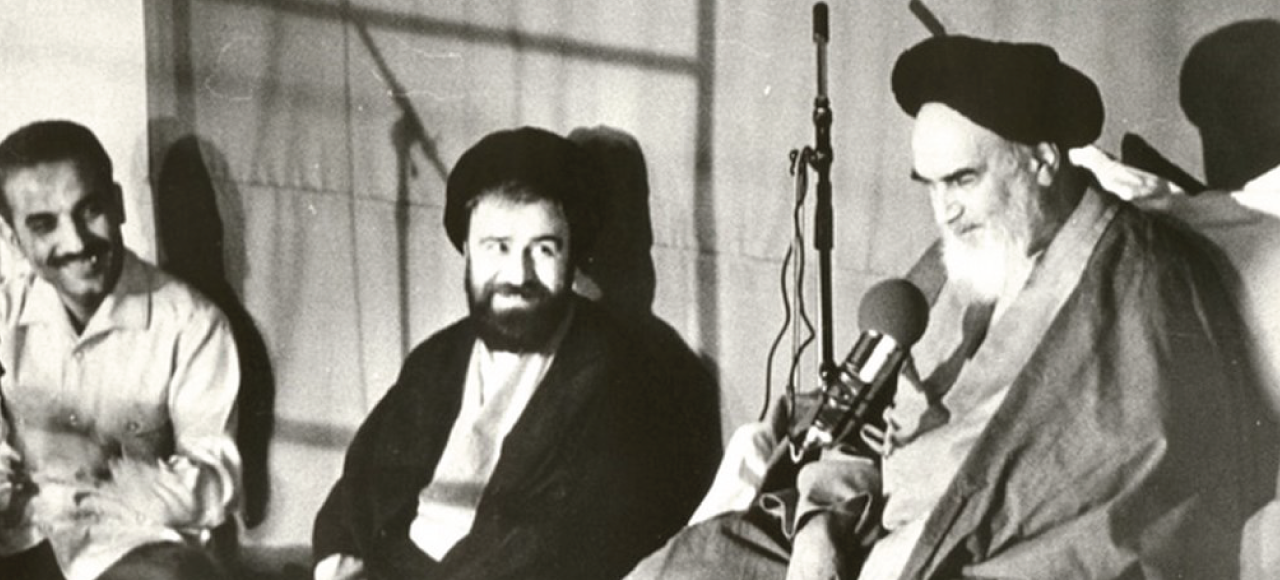
Left-wing intellectuals have a long and inglorious history of failing to see the malignancy of political regimes and movements that turn out to be violently despotic. One thinks of the Webbs’ enthusiasm for Stalin and the Soviet Union, which, on the part of Beatrice, extended to a defence of the show trials of the 1930s (“The soviet government was right, even from the standpoint of humanity alone.”); Brecht’s support for the government of the DDR, even as it invited Soviet tanks in to quell a workers’ revolt; and Chomsky’s blindness to the atrocities perpetrated by the Khmer Rouge in Cambodia. To this roll call of naiveté, it is right to add Michel Foucault and his enthusiasm for the Iranian revolution, evident in a series of articles he wrote for French and Italian newspapers in late-1978 and early-1979.
There is no doubting the violence, brutality and injustice of the rule of Mohammad Reza Pahlavi, the Shah of Iran, which sparked the popular uprising that finally led to his overthrow in February 1979. However, it was clear, at least to many not on the Left, that the particular Islamic form of the revolutionary movement had deeply troubling aspects. Atoussa H, an Iranian feminist writing in Le Nouvel Observateur, for example, noted in November 1978 that the Western Left supposes that Islam is desirable – albeit most Left intellectuals themselves don’t want to live under Islam – whereas “many Iranians are like me, distressed and desperate about the thought of an “Islamic” government. We know what it is. Everywhere outside Iran, Islam serves as a cover for a feudal or pseudo revolutionary oppression… The Left should not let itself be seduced by a cure that is perhaps worse than the disease.”
Foucault, unfortunately, was precisely seduced by the popular uprising in Iran, which he claimed might signify a new “political spirituality”, with the potential to transform the political landscape of Europe, as well as the Middle East. Thus, for example, in his October 1978 article, “What Are the Iranians Dreaming About?”, he adopted an almost mythic rhetoric to describe the revolutionary struggle:
The situation in Iran can be understood as a great joust under traditional emblems, those of the king and the saint, the armed ruler and the destitute excile, the despot faced with the man who stands up bare-handed and is acclaimed by a people.
And he added reassuringly that nobody in Iran envisaged bringing about a political regime in which clerics would have a controlling or even supervisory role. Rather, the popular uprising was aiming towards a “utopia” or “ideal”, which involved a notion of “advancing toward a luminous and distant point where it would be possible to renew fidelity rather than maintain obedience.” He added that in pursuit of this ideal, “the distrust of legalism seemed to be essential, along with a faith in the creativity of Islam.”
In the particulars, Foucault was effusive:
Islam values work; no one can be deprived of the fruits of his labor, what must belong to all (water, the sub-soil) shall not be appropriated by anyone. With respect to liberties, they will be respected to the extent that their exercise will not harm others; minorities will be protected and free to live as they please on the condition that they do not harm the majority; between men and women there will not be inequality with respect to rights, but difference, since there is natural difference. With respect to politics, decisions should be made by the majority, the leaders should be responsible to the people, and each person, as it is laid out in the Quran, should be able to stand up and hold accountable he who governs.
On February 1st 1979, five million people were on the streets of Tehran to welcome back Ayatollah Khomeini after 14 years of exile. By the end of February, power effectively lay his hands and the hands of a revolutionary council. Former officials of the Shah’s government were rounded up, and many were summarily executed. Public whipping was introduced for alcohol consumption. Libraries were attacked if they held books that were “anti-Islamic”. Broadcast media was censored. As for women’s rights, and Foucault’s claim that there would not be inequality, only difference (whatever that actually means), on March 3rd, Khomeini decreed that women would be unable to serve as judges; on March 4th, that only a man could petition for divorce; on March 9th, women were banned from participating in sport; and on March 8th, as predicted by many more pessimistic voices, women were ordered to wear the chador.
(Source: Janet Afary and Kevin B. Anderson, Foucault and the Iranian Revolution.)
Jeremy Stangroom co-founded The Philosophers’ Magazine with Julian Baggini.

